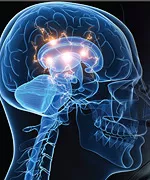Life Extension Magazine February 2012
By Martin Alessio
Aged people are in the midst of an escalating Alzheimer’s epidemic.1,2 It is now the sixth leading cause of death in the United States.3
The horrific progression of Alzheimer’s disease from dementia to personal extinction afflicts between 24-30 million people worldwide.4,5 Americans account for approximately one-fifth of those cases, which are expected to triple by 2050.3,6
While there is no cure for Alzheimer’s, there is new hope thanks to the work of a team of researchers at Massachusetts Institute of Technology (MIT.)7
These scientists have identified several correctable factors involved in Alzheimer’s onset—and a novel nutritional intervention that may effectively target them.
In this article, you will learn of the vital role that magnesium plays in protecting the aging brain’s structure and function and why conventional supplements don’t deliver enough magnesium into the brain.
Researchers have found that a new highly absorbable form of magnesium called magnesium-L-threonate concentrates more efficiently in the brain, rebuilds ruptured synapses, and restores the degraded neuronal connections observed in Alzheimer’s disease and other forms of memory loss.
In experimental models, magnesium-L-threonate induced improvements of 18% for short-term memory and 100% for long-term memory.8
Magnesium Deficiency: An Overlooked Cause of Neurologic Decay
Half of all aging individuals in the developed world are magnesium deficient, a nutritional deficit that worsens over time.
Confirmatory data show that Americans are no exception.9,10 For instance, American women consume just 68% of the recommended daily intake of magnesium.11
Magnesium has long been known as a key nutrient for optimal brain function. More recently, scientists have found it specifically promotes learning and memory as a result of its beneficial effect on synaptic plasticity and density.7,8,12
Magnesium works with calcium to modulate “ion channels” that open in response to nerve impulses, which in turn trigger neurotransmitter release. The most important of those channels is controlled by a complex called the NMDA receptor.13,14 NMDA receptors play an important role in promoting neural plasticity and synaptic density, the structural underpinnings of memory.15-17
Magnesium deficiency can cause symptoms ranging from apathy and psychosis to memory impairment.13,18 Insufficient magnesium slows brain recovery following injury from trauma19 and in laboratory studies accelerates cellular aging.20
Ominously, magnesium deficiency may produce no overt symptoms in its initial stages.21
Part of the problem is that it is difficult for the body to maintain sufficiently high concentrations of magnesium in the brain.8
For this reason, researchers have long sought ways that higher magnesium brain concentrations might be achieved and sustained.
A Breakthrough Form of Magnesium
Scientists have been challenged to find a way to raise magnesium levels in the brain.8 Even intravenous infusions cause only a modest elevation of magnesium levels in the central nervous system.22
An innovative team of researchers from the Massachusetts Institute of Technology (MIT) recently found a way to surmount this obstacle. They formulated a new magnesium compound called magnesium-L-threonate or MgT that in lab tests allows for oral administration while maximizing magnesium “loading” into the brain.7,8
Based on prior research, they meticulously documented that increased levels of magnesium in the brain promote synaptic density and plasticity in the hippocampus.14 Up until now, however, no widely available forms of magnesium met the criteria needed for rapid absorption and efficient transfer into the central nervous system.8
By contrast, MgT yielded compelling results.
MgT oral supplements increased magnesium levels in spinal fluid, an index of measurement in brain magnesium by about 15%, while none of the other magnesium compounds tested produced significant elevations.8 While a 15% increase may not sound like a lot, it induced a profound effect on neurological function.
To evaluate the effects of MgT on memory, the researchers tested it against currently available magnesium compounds. They used a simple assessment of learning and memory called the Novel Object Recognition Test or NORT. A high NORT score means that the animal is good at recognizing and identifying new objects, a skill that is critical in aging humans as well.8 NORT is a good test of function in the hippocampus, which is rich in the NMDA receptors so closely controlled by magnesium.23
The researchers put aged animals through the NORT test, supplementing them with MgT or one of the commercially available magnesium compounds. Only MgT significantly enhanced both short- and long-term memory, boosting scores by 15% for short-term memory and 54% for long-term memory compared to magnesium citrate.8


